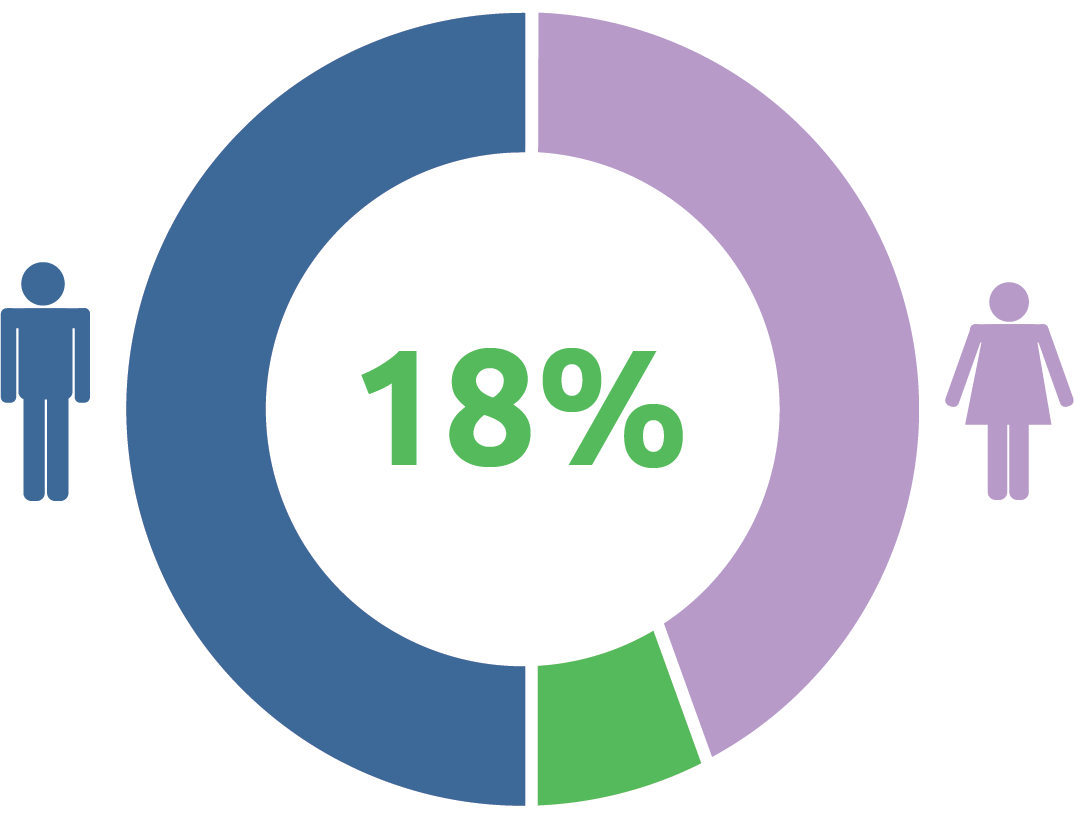THE CURRENT GENDER PAY GAP
More than three out of four UK companies pay their male staff more than their female staff. Despite this, it is often thought that the gender pay gap is an issue of the past.
Data indicating that the pay gap between genders is currently averaging around 18% nationwide suggests that this couldn’t be further from the truth.
But I thought we’d dealt with that issue decades ago?
Unfortunately, that isn’t the case. We have extraordinary women and women’s organisations to thank for the progress we’ve made so far. The Equal Pay Act of 1970 made it illegal to pay people doing the same job differently. However, the way pay inequality happens today is much more complex.
The gender pay gap these days isn’t as simple as genders simply being paid differently for doing the same job. In order to fully understand the gap, and eventually close it, we need to examine the problem more thoroughly.
So what is the gender pay gap exactly?
In the past, women fought to get the same pay for performing the same roles as men (and won!). Today, the gap isn’t about identical roles being compensated equally, it’s about work of equal value being paid differently.
Work of equal value can be carried out by completely different roles, with drastically different daily tasks. However, it must be equal in terms of either the level of responsibility required, amount of training, the effort involved or the working conditions.
To find an example, look no further than your local supermarket or your favourite clothing retailer. In this case, we can weigh how warehouse staff in these companies are valued compared to their in-store colleagues. At the moment, distribution centre workers are valued higher than in-store workers, despite some of their tasks requiring the same amount of effort. For example, the same boxes that the warehouse workers have to load, need to be unloaded and stocked by in-store staff.
Both government websites and our own research conclusively show that in-store workers are being underpaid compared to their warehouse counterparts.
Why does it still happen?
The employer doesn’t have to have bad intentions for the gender pay gap to exist. In fact, many are unaware of the fact that there is a gender pay gap among their employees. The problem stems from the fact that jobs with historically feminine elements to them, like cooking, cleaning and handling the cash register, are culturally considered to be less valuable.
For example, an administrative worker might be getting paid more than a canteen worker, even though the value they contribute to their employer is deemed to be equal. This is because a canteen worker’s tasks revolve around cooking – traditionally a job done by women, so it’s considered to be less valuable, and is paid less because of it.
The same goes for the warehouse and in-store staff. The distribution center workers contribute by performing a physically demanding role. In contrast, in-store staff provide value to their employer by handling cash, dealing with customers, representing the company and stocking the shelves. Yet, because most of the people doing in-store tasks are women, they are regarded as being less demanding.
I want to help. What can I do?
That’s great! Here’s a list of things you could do to contribute to the cause:
- If you’re an in-store worker, you could join the claim!
- You could also spread the word by sharing this page with your colleagues or anyone you know working at Boots .
- Alternatively, you can call us at 0161 883 3468 or send us an email at boots@payjustice.co.uk for some leaflets with information on the claim to help get the word out!
By taking part, you could make a difference in how women are valued in the workplace across the country!



Contact us
Any questions? Get in touch.
Please be assured that strong victimisation laws are in place to prevent any negative action being taken against you for bringing a claim. If you have any concerns about this or any other questions about the claim, you can call 0161 883 3468 and speak to our customer service team in confidence.
Copyright 2019 - Pay Justice Ltd - All Rights Reserved





